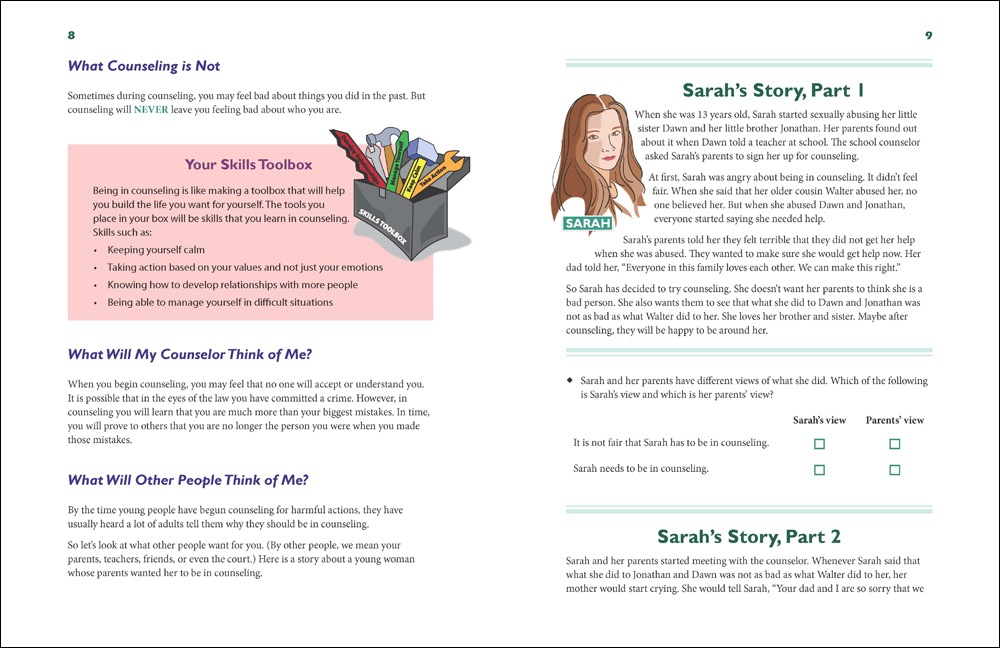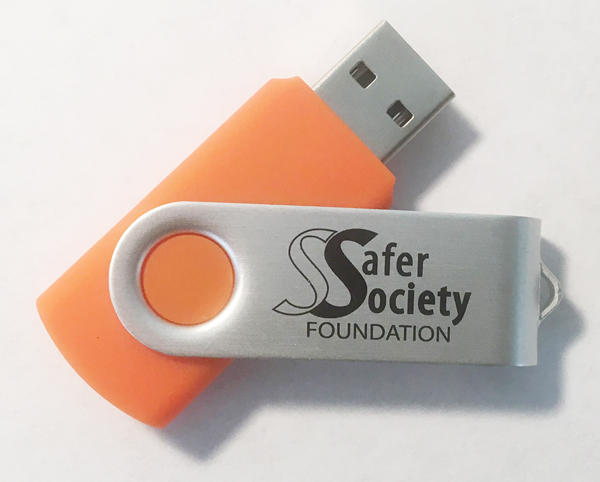Home / Shop / New Products
Becoming Who I Want to Be / Young Women

- Description
- Specifications
Becoming Who I Want to Be / Young Women
A Good Lives Workbook for Young Women
by David S. Prescott, LICSW & Tyffani Monford, PsyD
Young women and girls face significant challenges in today’s world. These challenges include a lack of support and structure from the family—often due to tough economic conditions—and unhealthy messages from social media about how to lead their lives. The social pressures on youths today are powerful and helping them turn their lives around is equally challenging for mental health professionals.
Do you have young female clients who:
- have turned to violence—including sexual abuse of others?
- struggle for a sense of independence and/or adopt an oppositional stance toward anyone they feel “stands in their way”?
- feel scared and alone and/or have turned to illegal drugs to deal with depression?
- experience anxiety about wanting to be liked but also feel anger and fear around sexual objectification?
To address these challenges, professionals can utilize the Good Lives Model to help reduce the risk of reoffending in young women and girls.
Like many strengths-based models of helping, the Good Lives Model (GLM) of rehabilitation is an approach that focuses the conversation between professionals and clients not on what is wrong with the client but rather on building clients’ understanding of what they want their lives to become. The model helps clients focus on eight “good life goals.” These goals, once clearly thought through and written out, guide clients toward leading a self-determined lifestyle.
What Are “Good Life Goals”?
The GLM takes its cue from many humanistic perspectives, all of which posit that all humans have similar goals: we seek to make our lives better. Some of those goals are:
- having a purpose in life
- enjoying life, having fun
- connecting with other people
- being physically healthy
In the good lives approach, the therapist and client explore how the client is currently pursuing these good life goals. Through these conversations, healthy - and unhealthy - ways of achieving the goals are uncovered. One can, for example, pursue the goal of “connecting with other people” by joining a gang. Instead of unhealthy routes such as this one, therapists and clients explore how this universal desire (connection with others) can be achieved in the client’s life in ways that don’t include violence, substance abuse, and incarceration.
What Are the GLM Workbooks?
Inside each workbook, you’ll find:
- full color illustrations.
- one chapter for each of the eight good life goals. Fourteen chapters in all.
- concepts expressed in simple language.
- realistic case stories to drive those concepts home.
These workbooks are intended for use with young people (early adolescence into early adulthood) with problem behaviors in a wide range of areas. They can be used in both group and individual counseling modalities.
With significant input from professionals who work with troubled youths, the authors and Safer Society Press have created these workbooks to be fun and engaging for young clients whose adverse childhood experiences and problem behaviors have caused them to choose dangerous and illegal life paths instead of fulfilling ways to lead their lives.
As shown in these sample pages, the book was written and designed to be fun to read and easy to comprehend.

Pages from the young women's edition.
Concepts are illustrated by "real life" case stories and examples. (For help with clients who would get more out of listening to the stories than reading them, see About the Audio Files, below.)
About the Counselor's Edition
(Now Available!)
The digital Counselor's Edition provides an introduction to the Good Live Model and, as seen below, author annotations that track the pages of the client workbook. The author's annotations explain the purpose of exercises and stories and offer suggestions for using the material in the workbook to engage clients in conversations about the concepts and how they apply in the clients' own lives.
Click here to order the Digital Counselor's Edition
About the Audio Files
(Now available!)
Concepts in the workbook are illustrated by "real life" case stories and examples. To help those clients who would get more out of listening to the stories than reading them, a set of mp3 audio files of author Tyffani Dent, PsyD reading every story in the book are available for download free of charge. The link to download these files is included in the purchase of the workbook.
NOTE: The workbook for young men is accompanied by its own Counselor's Edition and Audio Files.
978-1-940234-13-7
132 pages, paper
Order#: WP196


